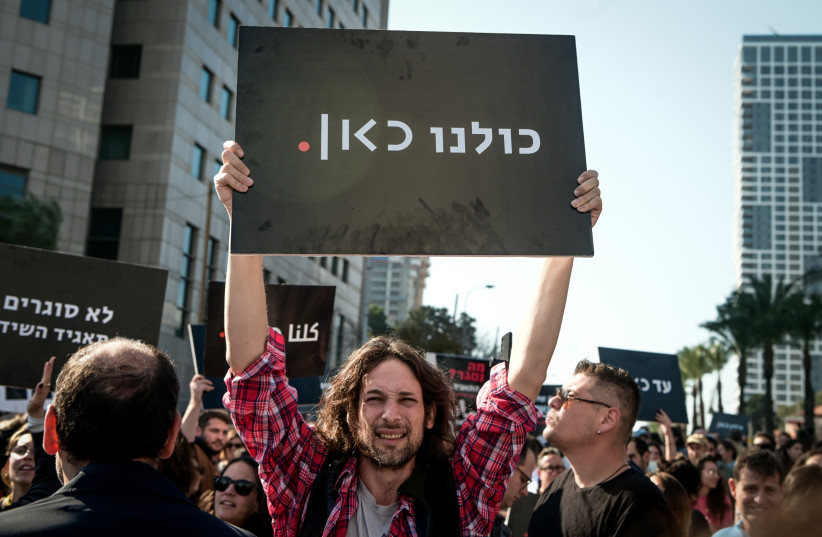In a move that has sparked concern and opposition, significant changes to Israel's TV and news sectors are on the horizon. The proposed reforms are expected to receive approval in the coming months, have raised alarms among the local broadcasting and production community, prompting them to unite and express their outrage.
Why are people upset?
The overall criticism of the broadcast reform bill, lofted by Communications Minister Shlomo Karhi, is that it would grant the government excessive power and control over TV and news broadcasting in Israel.
The current broadcasting market in the region is regulated by two organizations – the Second Authority for Television and Radio, and the Cable and Satellite Broadcasting Council. The reform would shut down these two regulators and create a new body called the Broadcast Media Authority – an auxiliary unit in the Communications Ministry. The Broadcast Media Authority will have the power to demand information from broadcasting organizations, supervise them, and impose fines up to 1% of their income. Critics argue that this new setup could lead to potential abuse, with the ruling politicians using fines as threats to silence media outlets and limit investigative journalism.
The reform plan also includes a requirement for news providers to present a variety of opinions, potentially leading to interventions in news content, which could be leveraged against content criticizing the government.
As well, the proposed change by Karhi's bill aims to set a minimal investment threshold for all broadcasters, regardless of the medium (cable, satellite, or internet). However, some major players like Cellcom, Partner, and Channel 14 would remain exempt from investing due to their earnings not meeting the required threshold. Moreover, the memorandum reduces the investment requirements for some supervised organizations, leading to concerns about the quality of Israeli content and the financial well-being of production companies and industry employees. The potential reduction in investments may negatively impact the industry and the overall quality of local content on television.

Other contentious aspects of the proposals include banning public broadcaster KAN 11 from generating revenue through advertising and introducing provisions that facilitate the sale of the network's assets, and, perhaps most peculiarly, the new legislation would establish a government committee to measure TV ratings, a responsibility that has traditionally been overseen by an independent measurement body. This has led to fears that the ratings data might be manipulated to create a false perception of right-leaning Channel 14's superiority over its competitors, making it more appealing to advertisers.
So, they’re upset
In an unprecedented move, KAN, Keshet, and Reshet issued a joint statement last week condemning the government's "destructive plan" as part of a broader scheme to suppress free media in Israel.
“The implementation of this plan, which includes substantial government oversight and government censorship of news, as is customary in dark regimes, will result in serious damage to Israeli democracy,” they said. “While in enlightened democracies the governments keep the media separate from politics – the Israeli government does the opposite and is trying to regain full control in its hands.”
The Israeli Journalists Association also weighed in, warning that Karhi's plan would blur the lines between fake news and news and undermine the distinction between funded content and genuine journalism.
In July, former communications minister Yoaz Hendel took to Twitter to criticize Karhi’s plan, stating that “Karhi is the essence of the [current] government,” and “the gist of the problem.”
“He managed at the same time to scare the opponents of the government and on the other hand to present something that has not the slightest chance of being realized. No competition, no free market, no infrastructure,” he said.
According to Hendel, Karhi was dead set on his reform plans since the start of his tenure. “When Karai was appointed to his position, we sat down for a short time — an hour, he didn't need more than that,” he recalled. “I did manage to tell him that the broadcasting market is not the focus of the Communications Ministry… the communications minister should not deal all day with the content of the media, but with communication infrastructures and a little regulation.”
He concluded by noting that “those who fear the end of democracy and the government's takeover of the broadcasting market can rest easy. In my opinion, nothing will change,” but that by focusing on “putting a finger in the eye of the leftists,” Karhi is ignoring the actual responsibilities that a communications minister is responsible for.
The public and stakeholders have been given a 21-day window to provide feedback on the proposed legislation. After the summer recess, the legislation will be revisited and is likely to be passed early next year. The outcome will undoubtedly shape the future of media in Israel and is being closely watched by both industry players and the general public.
